Athlete Focus
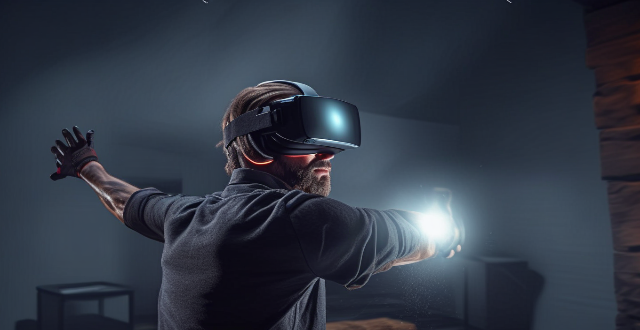
Can virtual reality training improve athlete skills ?
Virtual reality (VR) technology has been increasingly utilized in sports training, raising the question of whether it can improve athlete skills. The answer depends on several factors, including the type of sport and specific skills required. VR platforms offer a novel medium to develop cognitive skills such as concentration and alternating attention. They can be highly beneficial for sports requiring precision and accuracy, providing a controlled environment for repeated practice and immediate feedback. However, VR should not replace traditional physical training entirely but be used as a supplementary tool. Additionally, VR can help athletes mentally prepare for competition by simulating game scenarios and practicing decision-making skills under pressure. The effectiveness of VR training depends on various factors, and its evolution in sports training programs will be interesting to observe as technology advances.
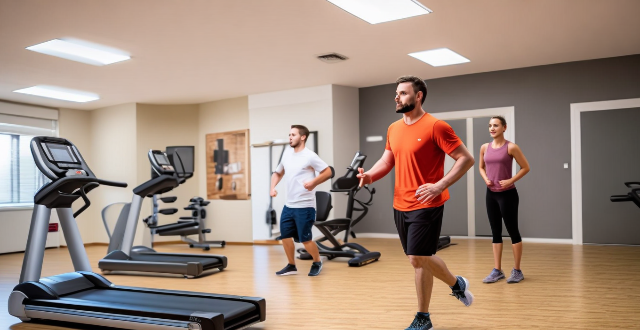
Can AI improve sports performance and athlete safety ?
Artificial Intelligence (AI) is transforming the sports industry by enhancing athletic performance and ensuring athlete safety through personalized gear design, optimized nutrition and training schedules, and injury prevention. AI's predictive capabilities help in preemptive measures against injuries, while wearable technology provides real-time data for monitoring an athlete's physical state. The future of AI in sports holds immense potential for real-time feedback, strategy adjustments, and fair play enforcement.
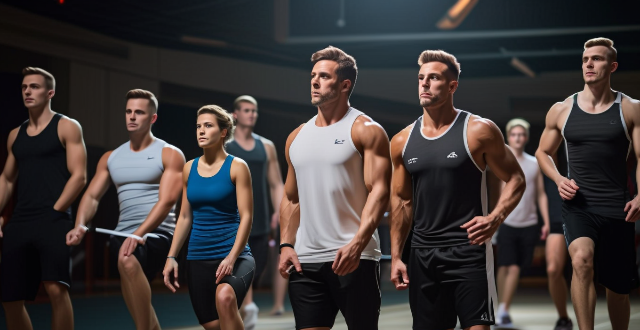
How does sports psychology differentiate between elite and average performers ?
In sports psychology, elite athletes are distinguished from their average counterparts by a combination of psychological traits, physiological factors, and environmental influences. Key differences include mental toughness, self-confidence, focus, emotional regulation, motivation, and the quality of support systems. Elite performers typically exhibit superior resilience, set ambitious goals, maintain better concentration, manage emotions effectively, possess intrinsic motivation, and train in environments that foster excellence. In contrast, average performers may struggle with these aspects, leading to suboptimal performance. Understanding these distinctions can help coaches, athletes, and sports psychologists develop strategies for improvement and success.

How can mindfulness practices be integrated into sports psychology for improved focus and performance ?
Mindfulness practices can be integrated into sports psychology to improve focus and performance for athletes. Benefits include improved concentration, reduced anxiety and stress, enhanced self-awareness, and better recovery. Techniques such as breathing exercises, meditation, visualization, mindful movement, and journaling can be used by athletes to develop greater awareness of their thoughts, feelings, and surroundings. Incorporating these practices into training programs can help athletes stay calm under pressure, maintain focus during competitions, and improve overall performance.

Are there any apps or tools designed to improve focus and productivity ?
In today's fast-paced world, staying focused and productive is crucial for success. With the plethora of distractions around us, it's essential to have tools that can help us stay on track. In this article, we will discuss some apps and tools designed to improve focus and productivity.

How do high-tech training facilities contribute to athlete development and recovery ?
High-tech training facilities contribute to athlete development and recovery by providing advanced equipment, technologies, and personalized programs. These resources help improve performance, prevent injuries, and facilitate efficient recovery.

What is the role of biometric monitoring in athlete health and fitness ?
Biometric monitoring is a valuable tool for athletes to optimize their performance, recovery, and overall well-being. By collecting and analyzing data related to an individual's physical characteristics, such as heart rate, skin temperature, and body composition, athletes can gain insights into areas where they may need improvement or make adjustments to their training regimen. Biometric monitoring can also help athletes monitor their recovery from workouts and competitions, optimize their training regimens, prevent injuries, and enhance their overall well-being. Overall, biometric monitoring plays a crucial role in athlete health and fitness by providing valuable insights into performance, recovery, training regimens, injury prevention, and overall well-being.
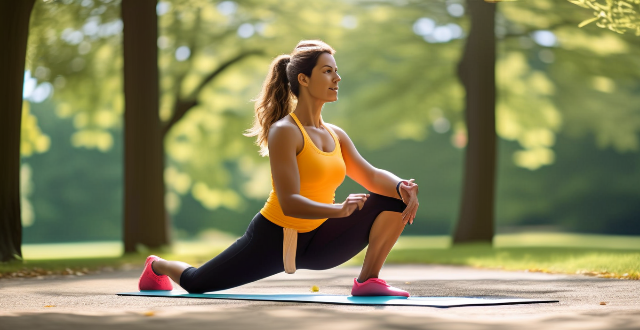
What is the best way to structure a training program for a beginner athlete ?
As an AI assistant, I can provide general guidelines and tips on how to structure a training program for a beginner athlete. Before starting any training program, it is important to set clear goals and objectives. Every training session should start with a warm-up and end with a cool-down period. Strength training should be a key component of any beginner athlete's training program. Cardiovascular training is essential for improving endurance, burning calories, and enhancing overall health. Flexibility and mobility are often overlooked but are crucial for preventing injury, improving performance, and maintaining good posture. Recovery and rest are equally important as training itself. By following these guidelines and seeking guidance from qualified coaches or trainers, beginner athletes can safely and effectively improve their fitness levels and achieve their desired outcomes.

What are some effective techniques for improving concentration and focus ?
Concentration and focus are crucial skills for achieving goals, whether it's studying, working, or enjoying a hobby. Here are some effective techniques to improve them: minimize distractions by turning off notifications and finding a quiet place; take short breaks every hour or use the Pomodoro technique; practice mindfulness through meditation and deep breathing; set clear goals and prioritize tasks; eliminate multitasking and focus on one task at a time; get enough sleep and create a relaxing bedtime routine; exercise regularly to enhance cognitive function; stay hydrated to avoid fatigue; use visual cues like charts and diagrams; and limit caffeine intake to avoid jittery feelings.
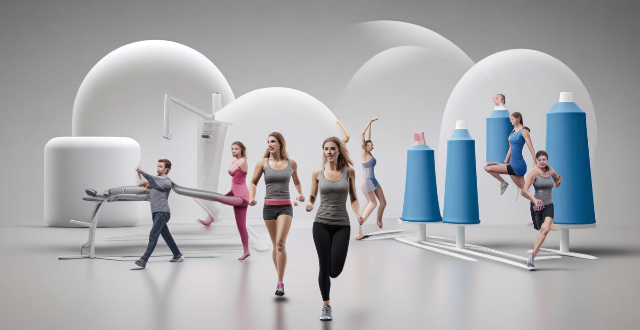
Are there specific breathing exercises that aid in maintaining focus ?
There are several breathing exercises that can aid in maintaining focus, including diaphragmatic breathing, alternate nostril breathing (Nadi Shodhana), box breathing, and roll breathing. These techniques calm the mind, reduce stress, and increase oxygen flow to the brain, enhancing cognitive function and mental clarity. Incorporating these exercises into your daily routine can help improve your ability to maintain focus and concentration.
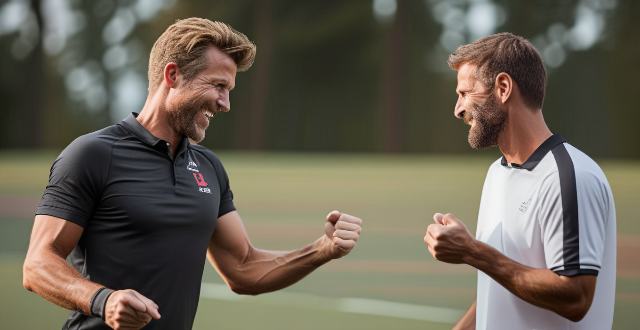
How does mental toughness impact athletic performance at a competitive level ?
In summary, this article explores the impact of mental toughness on athletic performance at a competitive level. It highlights the benefits of mental toughness, including enhanced focus and concentration, improved resilience and coping mechanisms, increased confidence and self-belief, and better decision making under pressure. The article also provides practical tips for developing these essential skills through mindfulness techniques, visualization, positive self-talk, scenario training, and continuous self-improvement. Overall, mental toughness is crucial for athletes to perform at their best and achieve success in their chosen sport.

What role does physical exercise play in boosting mental focus ?
Physical exercise is not only beneficial for our physical health, but it also plays a crucial role in enhancing mental focus. Here's how: 1. Release of Endorphins: Regular exercise triggers the release of endorphins, which can help reduce stress and anxiety, leading to improved mental clarity and focus. 2. Increased Blood Flow to the Brain: Engaging in physical activities increases blood flow to the brain, delivering more oxygen and nutrients. This increased blood flow can help improve cognitive function, memory, and overall mental sharpness. 3. Better Sleep Quality: Exercise has been shown to promote better sleep quality and duration. Adequate sleep is essential for maintaining mental focus and concentration throughout the day. 4. Reduction of Stress and Anxiety: Physical activity helps lower levels of the body's stress hormones, such as cortisol. By reducing stress and anxiety, exercise allows individuals to maintain a clearer mind and stay focused on tasks at hand. 5. Enhanced Self-Confidence and Mood: Regular exercise can boost self-esteem and confidence, leading to a positive outlook on life. A positive mindset contributes to better mental focus and productivity. 6. Improved Cognitive Function: Studies have found that regular physical exercise can lead to improvements in various aspects of cognitive function, including attention, memory, and executive functions. These cognitive enhancements directly contribute to increased mental focus and concentration.
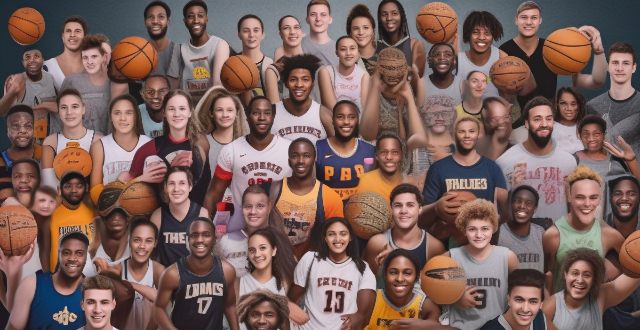
How do I become a professional athlete in basketball ?
To become a professional basketball player, start early, practice regularly, join a team or club, focus on academics and attend a good high school with a strong basketball program. Get recruited by a college program, excel in college, gain national exposure, hire an agent, and go through the draft process. Stay focused, maintain a positive attitude, and be willing to put in the work to achieve success.

What is the Pomodoro Technique and does it really work for enhancing focus ?
The Pomodoro Technique is a time management method designed to improve focus and productivity. It involves working for 25 minutes followed by a short break, with longer breaks after every four Pomodoros. The technique aims to enhance concentration, manage time effectively, reduce procrastination, and boost overall productivity. However, its effectiveness can vary based on individual adaptability and workflow.
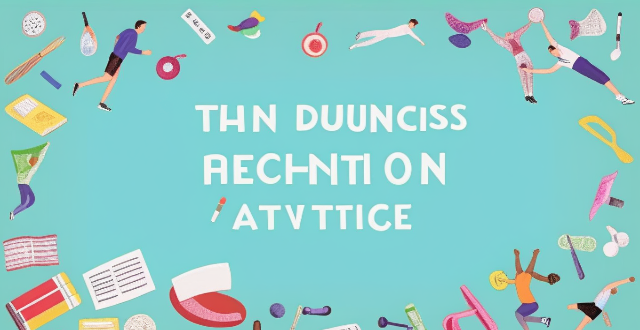
What techniques can help me improve my focus and concentration during sports activities ?
This text discusses various techniques that can help improve focus and concentration during sports activities. These techniques include mindfulness meditation, visualization techniques, goal setting, positive self-talk, and proper nutrition and hydration. The text explains how each technique can be practiced and its benefits in improving performance in sports. By incorporating these techniques into daily routine, athletes can enhance their focus and concentration, leading to better performance and enjoyment of their chosen sport.

How can sports psychology help athletes manage stress and pressure during competitions ?
Sports psychology helps athletes manage stress and pressure during competitions by providing techniques and strategies to improve mental toughness, confidence, and focus. These techniques include goal setting, visualization, breathing exercises, mindfulness and meditation practices, and coping strategies such as problem-solving and emotion regulation. By implementing these tools, athletes can improve their performance and enjoy their sport more fully.
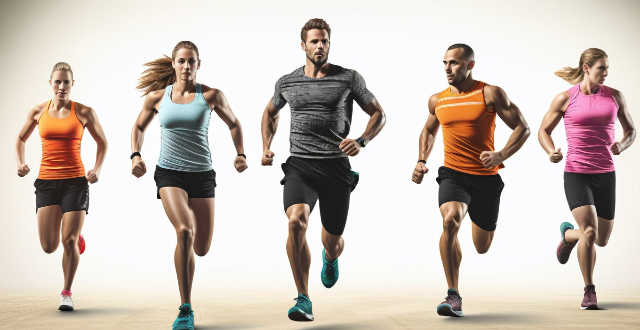
What are the most common metrics used in analyzing sports performance ?
Analyzing sports performance is crucial for athletes, coaches, and teams to improve their skills, strategies, and overall performance. There are several metrics used to evaluate different aspects of sports performance, including time-based metrics such as speed and pace; distance-based metrics such as distance covered and displacement; power-based metrics such as peak power and power endurance; technique-based metrics such as form analysis and biomechanical analysis; physiological metrics such as heart rate and VO2 max; and mental metrics such as mental toughness and motivation levels. These metrics can help athletes and coaches identify areas for improvement and develop effective training programs to enhance performance.

How does sports psychology help in managing pre-game anxiety and nervousness ?
Pre-game anxiety and nervousness are common experiences for athletes, but sports psychology offers strategies to manage these emotions effectively. These include goal setting, relaxation techniques, cognitive restructuring, establishing routines, practicing mindfulness, and leveraging social support. By implementing these tools, athletes can enhance their mental resilience and perform at their best when it matters most.

How do different coaching styles impact the development of high-level athletes ?
This text discusses the impact of coaching styles on high-level athlete development. It highlights different coaching styles such as autocratic, democratic, visionary, servant leadership, and transformational, discussing their advantages and disadvantages in the context of athlete development. The text emphasizes that effective coaching approaches often depend on the specific needs of athletes and team goals. Coaches should consider adapting their style based on feedback from their athletes to ensure continuous improvement and success.
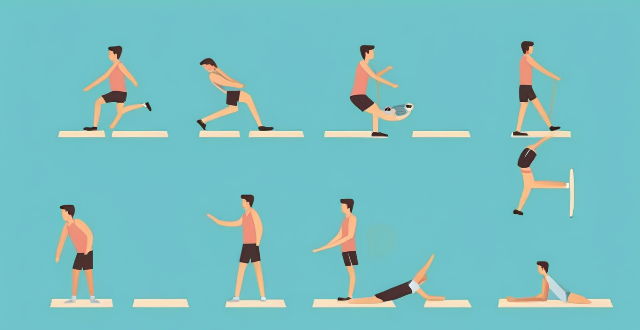
How do force vectors influence an athlete's movement in sports biomechanics ?
Force vectors play a crucial role in sports biomechanics. The magnitude and direction of force vectors determine an athlete's acceleration, deceleration, and direction of motion. There are several types of force vectors, including internal, external, contact, frictional, and elastic forces. Understanding how these force vectors influence an athlete's movement is essential for improving performance and preventing injuries in sports. Coaches and athletes can use this knowledge to optimize their training programs and techniques.
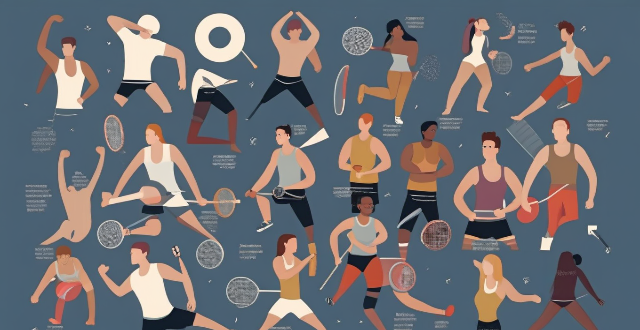
How do psychological factors influence sports performance and research ?
This document discusses the influence of psychological factors on sports performance, emphasizing the importance of motivation, confidence, concentration, resilience, and team dynamics. It highlights how these elements can enhance or hinder athletic performance and underscores the significance of research in understanding and applying psychological principles to optimize athlete mental states. The text concludes by noting the potential for ongoing research to refine our comprehension and application of psychology in sports, aiming to help athletes achieve their full potential mentally and physically.

How can sports medicine help athletes recover from surgery or injury ?
**Sports Medicine: Aiding Athletes in Recovery from Surgery or Injury** The field of sports medicine plays a critical role in helping athletes recover from injuries and surgeries. It involves a multifaceted approach that includes pre-operative management, post-operative care, rehabilitation programs, and facilitating a safe return to sport. Professionals in this area assess the injury, prepare the athlete for surgery, manage pain, provide physical therapy, offer nutritional and psychological support, and create tailored rehabilitation programs focusing on functional training, strength building, flexibility, and endurance. The ultimate goal is to ensure the athlete's complete recovery and prevent future injuries.

How does music affect athletic performance ?
Text is about how music can affect athletic performance. It explains the ways in which listening to music while exercising or competing can increase motivation, improve focus, reduce the perception of effort, and distract from pain and fatigue, leading to better performance and results.
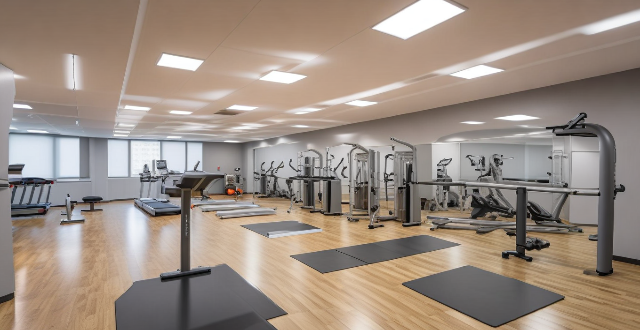
How do sports psychologists assist coaches in understanding and managing their athletes' mental health ?
Sports psychologists assist coaches in managing athletes' mental health by providing education, individual assessments, mental skills training, counseling, team building activities, crisis intervention, and feedback. This support helps coaches create a supportive environment for athletes to perform at their best mentally and physically.
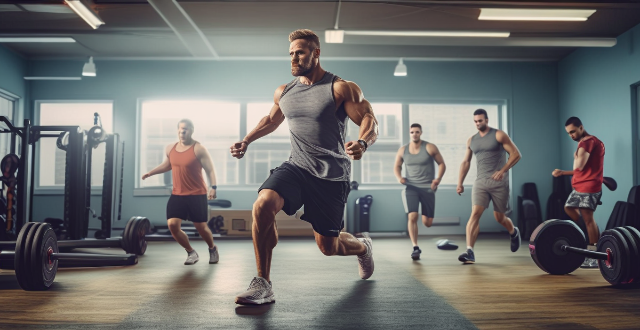
What are the key elements of a successful sports training program ?
A successful sports training program is essential for athletes to improve performance and achieve goals. Key elements include clear objectives, comprehensive planning, variety and progression in workouts, proper technique and form, recovery and regeneration strategies, mental toughness and focus, nutrition and hydration, and continuous assessment and adjustment. By incorporating these elements, athletes can maximize potential and minimize risk of injury and burnout.

How do Paralympic athletes train and compete in their respective sports ?
Paralympic athletes, like their Olympic counterparts, undergo rigorous training regimens to compete at the highest level. However, their training and competition processes often involve unique adaptations due to their disabilities. Paralympic sports have a unique system called "classification" which determines how an athlete's impairment affects their performance in a given sport. Athletes are evaluated and placed into different classes based on their functional ability, ensuring fair competition. Many sports use modified equipment designed to accommodate specific impairments, such as prosthetic limbs for amputee athletes or wheelchairs for those with lower limb disabilities. Rules are often adjusted to account for different abilities, ensuring that all athletes can participate effectively. Paralympic athletes engage in strength, endurance, and skill-specific training tailored to their needs and capabilities. They may work with specialized coaches who understand how to maximize performance despite physical limitations. Athletes might need to adapt techniques used by able-bodied athletes to suit their own bodies and equipment. For instance, a wheelchair basketball player will have a different shooting technique compared to a standing player. Just like any high-level athlete, mental preparation is crucial for Paralympians. They may work with sports psychologists to develop strategies for dealing with competition stress and maintaining focus. Before an event, athletes go through warm-up routines specific to their needs. They also ensure that their equipment is properly adjusted and ready for competition. Athletes compete according to the rules of their sport, with classification taken into account during events. They demonstrate not only physical prowess but also strategic thinking and mental toughness. After competing, athletes cool down and recover just like any other athlete. They review their performance with coaches to identify areas for improvement. Paralympians often face additional challenges related to their disabilities, such as pain management or fatigue. They work closely with medical professionals to manage these issues and maintain peak performance. Venues must be accessible and equipped to handle the specific needs of Paralympic athletes. This includes ramps instead of stairs and adequate space for wheelchair users.

What are the best sports nutrition supplements for enhancing athletic performance ?
The article discusses the importance of sports nutrition supplements in enhancing athletic performance. It highlights five key supplements that can help athletes improve their performance: 1. Protein Supplements: Essential for building and repairing muscles, protein supplements like whey, casein, and soy protein can support muscle growth, increase strength, and improve body composition. 2. Creatine Supplements: Popular among athletes for increasing muscle mass and improving performance during short, high-intensity exercise. Creatine also enhances recovery between workouts. 3. Beta-Alanine Supplements: An amino acid that increases muscle carnosine levels, beta-alanine can improve endurance capacity during high-intensity exercise, reduce fatigue, and enhance muscle strength and power. 4. Caffeine Supplements: A natural stimulant that can increase energy levels, reduce fatigue, improve mental focus, and enhance endurance capacity during prolonged exercise. 5. Multivitamins and Minerals Supplements: Important for overall health and well-being, multivitamins and minerals can help prevent nutrient deficiencies that could impair performance and enhance immune function and recovery from training. The article emphasizes the importance of choosing safe and effective supplements that meet the specific needs of an athlete and consulting with a healthcare professional or registered dietitian before starting any new supplement regimen.

What are the latest trends in sports research and development ?
The latest trends in sports research and development include wearable technology for real-time monitoring, data analytics for performance evaluation, genetic testing for personalized training, VR and AR for skill development, recovery technologies like cryotherapy, and nutritional advances. These advancements focus on enhancing athletic performance while emphasizing athlete health and well-being.

What are the benefits of hiring a sports agent for career management ?
Hiring a sports agent can bring numerous benefits to an athlete's career management, including negotiating contracts and deals, marketing and branding assistance, legal representation, and career planning and development. By working with an experienced sports agent, athletes can focus on their performance while leaving the business side of their careers in capable hands.

How do sports psychologists help athletes deal with performance anxiety ?
Sports psychologists use various techniques to help athletes manage performance anxiety, including assessment and goal setting, cognitive behavioral techniques, building mental toughness, establishing routines, fostering social support, and ongoing assessment. These strategies aim to enhance an athlete's mental resilience and enable them to perform optimally under pressure.